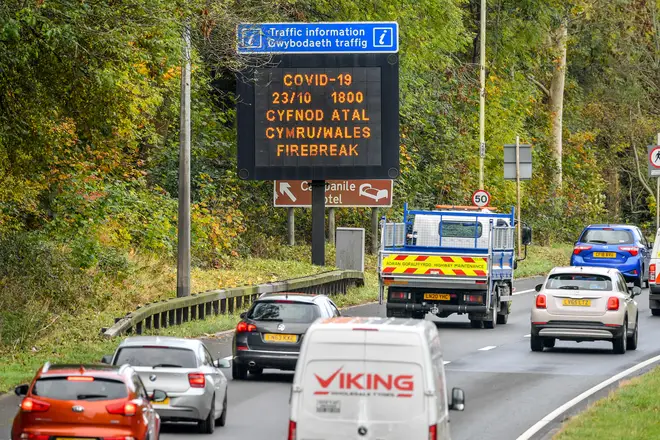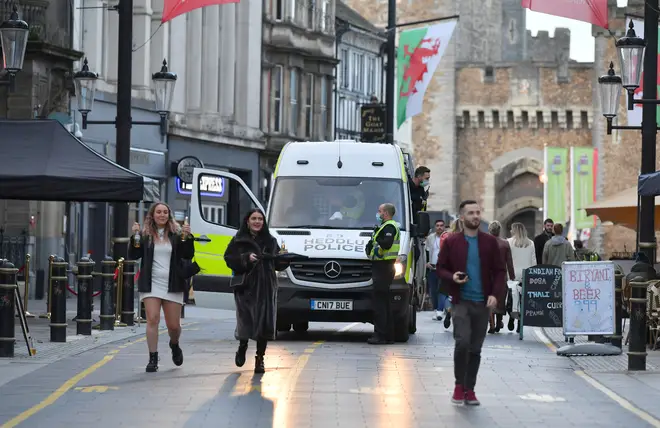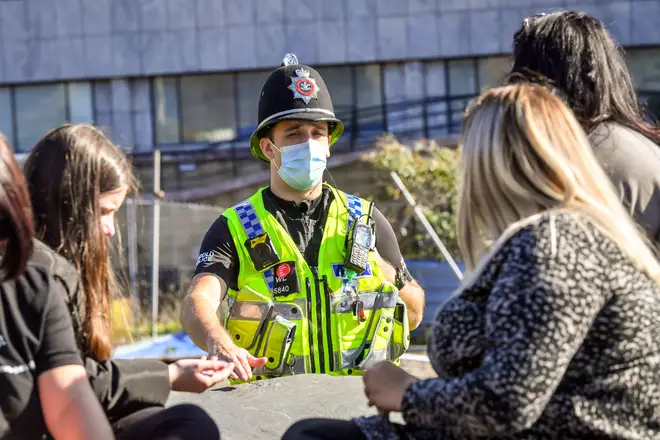
Tom Swarbrick 4pm - 7pm
23 October 2020, 19:31 | Updated: 23 October 2020, 19:39

People in Wales have entered a two-week 'fire break' lockdown in an attempt to curb the spread of Covid-19 - but what are the rules and who do they apply to?
Welsh First Minister Mark Drakeford announced on Monday that the country would need to go much further to slow the rising number of infections, hospitalisations and deaths.
He laid out a set of measures similar to the first lockdown in March, which helped bring down the infection rate in the majority of areas.
Over the Summer, however, the number of Covid-19 cases slowly began to rise as non-essential shops and hospitality reopened, which is now causing a significant number of hospital admissions and, consequently, deaths.
The lockdown will last for 17 days and came into force on Friday 23 October at 6pm.
It will end at 12.01am on Monday 9 November.
The First Minister insisted the end date will be stuck to by the Government after fears they could extend it further.

Pubs, bars and restaurants are some of the many thousands forced to shut their doors on Friday - except for takeaways.
All non-essential retail, leisure, and tourism have also closed, including clothes shops, furniture shops and car dealerships.
All entertainment venues, such as cinemas, theatres and bowling alleys, are now closed for two weeks as well.
Only grocery shops and supermarkets are staying open but have been told to prevent customers from buying non-essential items.
Food shops are also banned from selling alcohol after 10pm each day - including online deliveries.
As well as supermarkets; banks, pharmacies and post offices are remaining open.
The Welsh Government advises, however, to avoid visits to these essential businesses wherever possible.
Childcare facilities are also staying open to provide much-needed support to parents.
While there are no set rules on how far people can travel, it is strongly advised to stay as close to home as possible.

People react as Wales begins it's 17 day "firebreak"
Primary schools will remain open throughout the lockdown, except for half-term from 26 to 30 October when they would be shut anyway.
Secondary schools, however, are now closed until after half-term, when they will re-open for children in years seven and eight only until the end of the two-week lockdown.
Colleges are being asked to provide online-only lessons during the lockdown, while Universities can offer a 'blended' approach of online and in-person lectures.
Any child or student sitting exams, however, can go into their respective schools, colleges or Universities to take them.
People are being asked to stay at home as much as possible for the full two weeks.
They can, however, leave the house as much as they like for physical exercise.
For most people, no. Those who live alone or single parents can form a support bubble with other another household in the same circumstances.
For exceptional circumstances, such as childcare or death of a loved one, there is an exemption.

Travel has been limited to 'essential only', meaning that you must not travel outside your local area without an excuse, such as work.
People are also banned from travelling abroad unless they have a reasonable excuse.
Those with pre-booked holidays have been asked to talk with their travel agent to discuss repayments.
Extra police officers will be patrolling town and city centres throughout the lockdown, as they have been for several months.
Forces have been given to power to fine people as well, with penalties starting at £60 and up to £10,000 for serial offenders.
In extreme circumstances, however, officers are able to arrest people who are refusing to comply with rules which are strictly against the law.